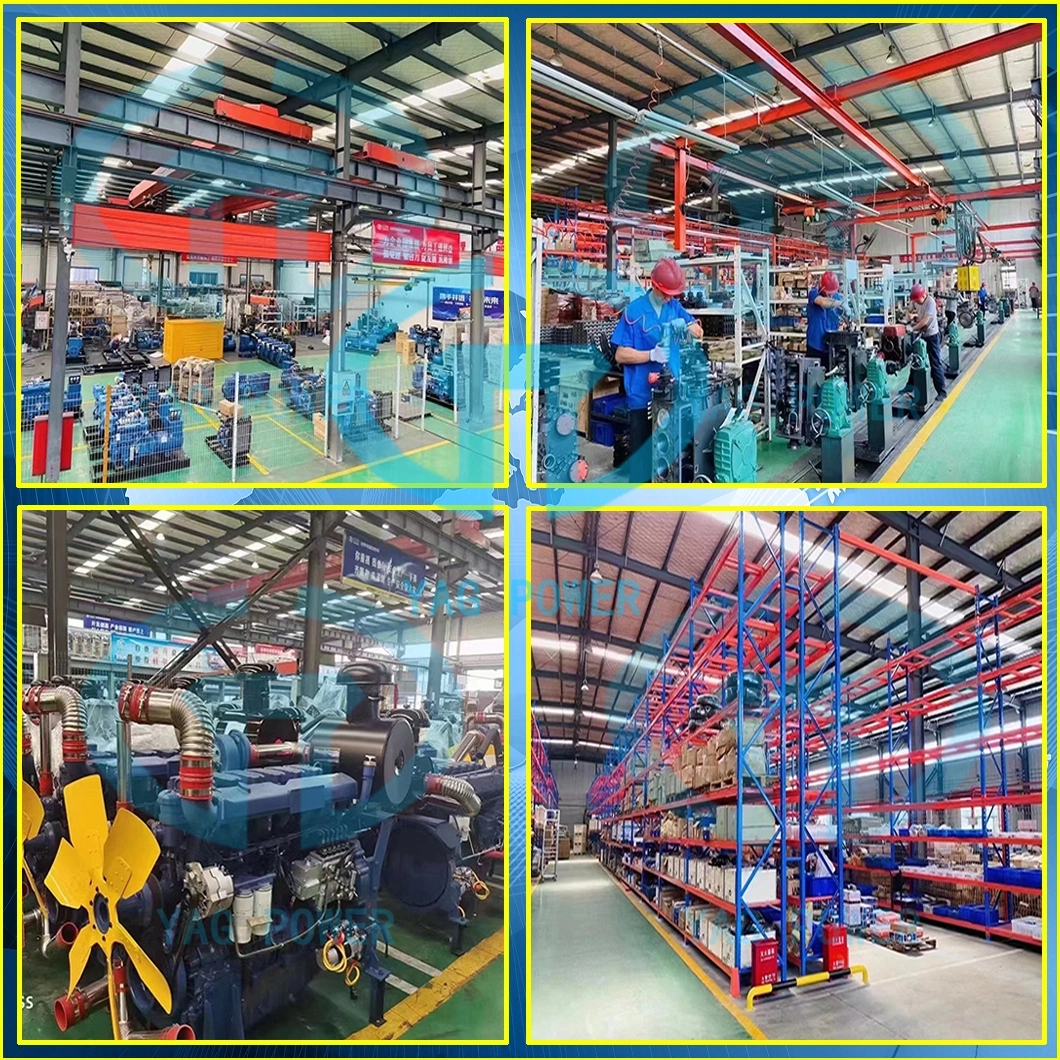Introduction:
Construction sites are a hub of activity, with heavy machinery, power tools, and equipment all requiring a reliable source of power. When grid power is unavailable or unreliable, diesel generators become indispensable for keeping operations running smoothly. In this comprehensive guide, we will explore the importance of diesel generators for construction sites, their key features, benefits, maintenance tips, and best practices for efficient use.
Chapter 1: Understanding Diesel Generators
1.1 What is a Diesel Generator?
A diesel generator is a combination of a diesel engine with an electric generator (often referred to as an alternator). The diesel engine drives the generator to produce electricity, providing a reliable source of power in areas where grid power is not available or as a backup during power outages.
1.2 How Do Diesel Generators Work?
Diesel generators operate on the principle of converting diesel fuel into mechanical energy through combustion in the engine. This mechanical energy is then converted into electrical energy by the generator, which produces the required voltage and current to power construction equipment and tools.

Chapter 2: Importance of Diesel Generators in Construction Sites
2.1 Reliable Power Source
Construction sites often operate in remote locations or areas with unreliable grid power. Diesel generators provide a dependable source of power to keep essential equipment and machinery running smoothly, ensuring uninterrupted workflow and productivity.
2.2 Versatility
Diesel generators are versatile and can power a wide range of equipment, including lighting systems, concrete mixers, pumps, compressors, and power tools. Their portability and ease of installation make them ideal for temporary construction sites or mobile operations.
2.3 Emergency Backup
In the event of a power outage or grid failure, diesel generators serve as a crucial backup power source to prevent downtime and delays in construction projects. They can keep critical systems operational until grid power is restored.
Chapter 3: Key Features of Diesel Generators for Construction Sites
3.1 Power Output
Diesel generators are available in a wide range of power outputs to suit the specific needs of construction sites. From small portable units for powering tools to larger stationary generators for running heavy machinery, there is a diesel generator size for every application.
3.2 Fuel Efficiency
Diesel generators are known for their fuel efficiency, making them a cost-effective power solution for construction sites. Diesel fuel is more energy-dense than gasoline, providing more power per unit of fuel consumed and resulting in lower operating costs.
3.3 Durability and Reliability
Construction sites are harsh environments that demand rugged and reliable equipment. Diesel generators are built to withstand tough conditions, with robust engines and components that can endure heavy-duty use and extended operation.
Chapter 4: Benefits of Using Diesel Generators in Construction Sites
4.1 Cost-Effective Power Solution
Despite the initial investment, diesel generators offer long-term cost savings due to their fuel efficiency and low maintenance requirements. They are a cost-effective power solution for construction sites where grid power is not available or practical.
4.2 Portability and Mobility
Portable diesel generators are easy to transport to different locations within a construction site, providing flexibility and adaptability to changing power needs. This mobility allows construction crews to work efficiently in various areas without relying on fixed power sources.
4.3 Quick Start-Up and Response Time
Diesel generators have quick start-up times and can rapidly respond to sudden power demands, ensuring that construction operations can continue without interruptions. This feature is crucial in time-sensitive projects where downtime can lead to delays and increased costs.
Chapter 5: Maintenance Tips for Diesel Generators
5.1 Regular Inspections
Perform routine inspections of the diesel generator, including checking fuel levels, oil levels, coolant levels, and battery condition. Address any issues promptly to prevent breakdowns and ensure reliable operation.
5.2 Scheduled Maintenance
Follow the manufacturer's recommended maintenance schedule for servicing the diesel generator. This includes changing oil and filters, inspecting and cleaning components, and testing the generator under load to ensure optimal performance.
5.3 Fuel Quality
Use high-quality diesel fuel and store it properly to prevent contamination and degradation. Dirty or contaminated fuel can damage the generator engine and reduce its efficiency, leading to costly repairs and downtime.
Chapter 6: Best Practices for Efficient Use of Diesel Generators
6.1 Load Management
Proper load management is essential for maximizing the efficiency and longevity of a diesel generator. Avoid overloading the generator beyond its capacity, as this can strain the engine and lead to premature wear and damage.
6.2 Fuel Monitoring
Monitor fuel consumption and keep track of fuel levels to avoid running out of fuel unexpectedly. Maintain a sufficient supply of diesel fuel on-site to ensure continuous operation of the generator without interruptions.
6.3 Environmental Considerations
Be mindful of environmental regulations and emissions standards when using diesel generators on construction sites. Choose generators that comply with emission requirements and implement proper exhaust ventilation to minimize air pollution.
Conclusion:
Diesel generators play a vital role in powering construction sites and ensuring smooth operations in challenging environments. Their reliability, versatility, and cost-effectiveness make them indispensable for construction crews working in remote locations or areas with unreliable grid power. By understanding https://www.lkpowerplant.com/product/quick-delivery-emergency-standby-power-400kw-silent-type-diesel-generator-set-for-peru/ , benefits, maintenance tips, and best practices for efficient use of diesel generators, construction professionals can optimize their power supply and enhance productivity on the job site.
